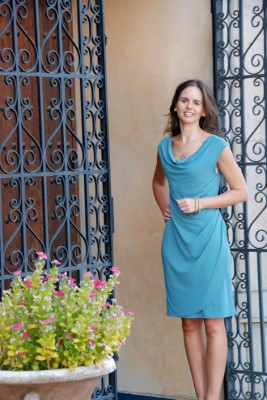![]()

Camelback Odyssey Travel
Phoenix, AZ
Unlike most people, Shelby Donley was willing to take an entrepreneurial risk in 2008. She purchased Camelback Odyssey Travel, an agency in an industry she had little experience in, except for the personal vacations she had previously booked through the company. A struggling business in an industry that continues to be challenged by obsolescence, Camelback didn’t exactly shout “opportunity.” Perhaps that’s what made it a perfect match for an outsider like Donley, who up to that point had made her career in marketing. A fresh perspective, devoid of preconceptions and conventions, was just what the company needed.
Traditional travel agencies function something like a vending machine, says Donley, who services as Camelback’s president. Standing between the customer and their destination, they are middlemen, completing the transactional portion of the process and dispensing tickets. That’s a service some vacationers are looking for, but Donley came to Camelback to pursue a different clientele: travelers who aren’t looking for just a trip, but an “experience”—one of many in a “lifestyle” of travel.
Donley drew a parallel between the services she sold in sports marketing and those she knew travelers wanted but were often lacking in travel agencies. In the marketing arena, Donley dealt less in single TV spots or standalone billboards and focused much of her work plotting out a multiplatform approach, creatively packaging campaigns, and proposing the plan to her clients. After months of speaking with her mentors, Matthew Upchurch, who owns Virtuoso, an exclusive travel consortium, and Troy Haas, who runs a luxury travel agency, she realized the untapped value in a curatorial process that could be applied to travel management.
“Our model couldn’t be further from traditional,” Donley says. “People come to us for the value of our service and contacts. They may not know exactly what they want, so we do the qualifying and the compiling so they can enjoy an extraordinary experience. We always want to pleasantly surprise them by exceeding expectations.”
Camelback clients come to the agency with a list not of where they can make compromises, but rather their nonnegotiables. “We’re serving a niche market and happy doing that,” she says. “It doesn’t make sense for everyone, but it does for us.”
The proof of that statement can be seen in Camelback’s consistent growth since 2009, the last year the business saw seven-figure sales numbers. Averaging more than 26 percent growth year-over-year, Camelback is standing as a testament to the healthy demand for luxury travel.
Such a standard is upheld by Donley’s commitment to making business decisions that are best for the customer and the direction of Camelback, but not necessarily the bottom line. From a strictly profit-driven perspective, a prospective partner may be able to offset subpar suppliers with a hefty client pool, but Donley says she’s not interested in gaining clients in spite of quality. “We’re really good at 5-star travel, and sometimes 4-star when necessary,” she says. “Our passion is the best hotels in the best cities all over the world, not the cheapest way to do Paris in a week.”![]()

